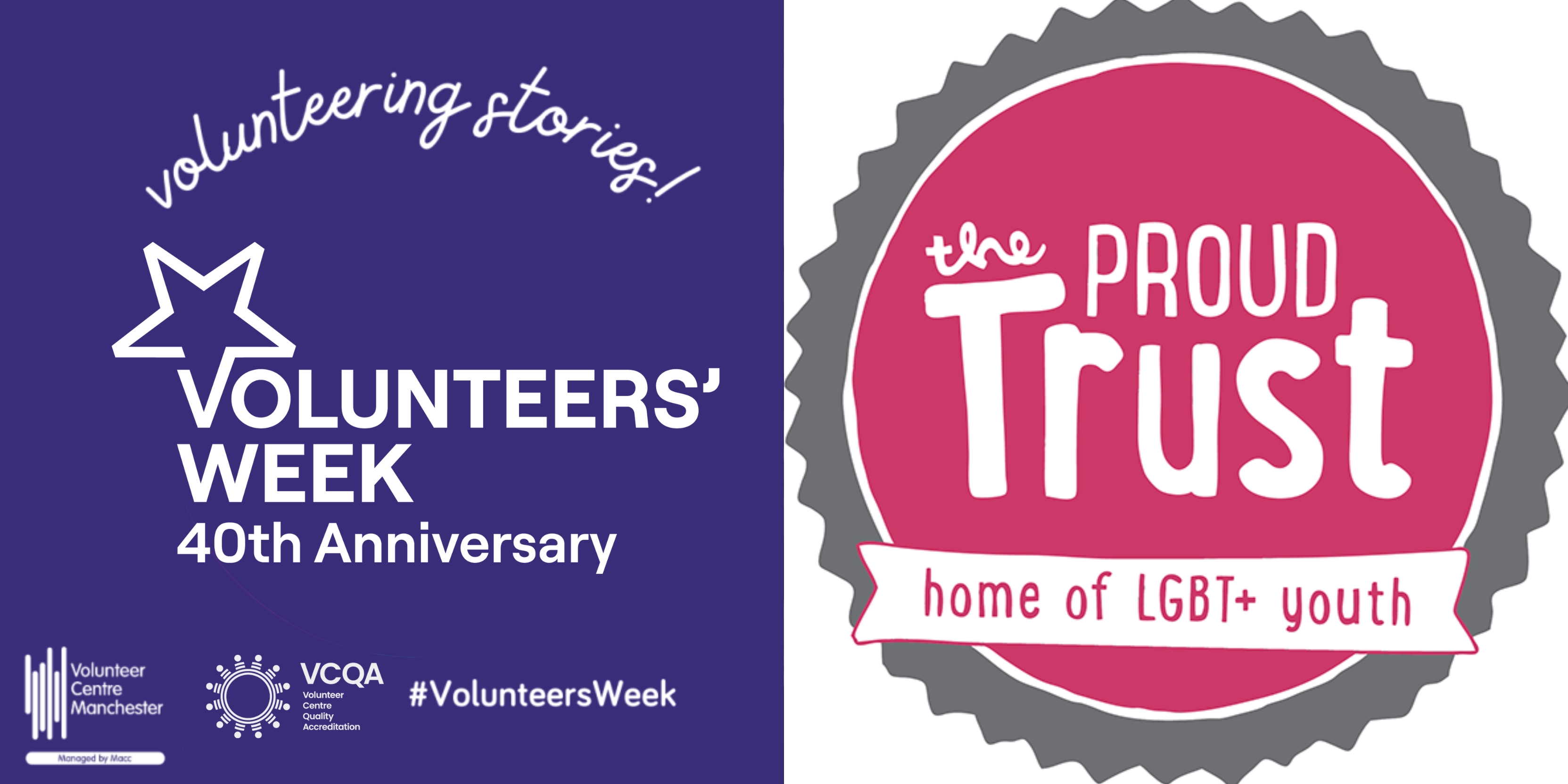
Celebrating the achievements of The Proud Trust, who were awarded the Investing in Volunteers quality standard for good practice in volunteer management this year.
Thank you to Laura Rees-Moffitt from The Proud Trust for helping us to shape this story.
What motivated your organisation to pursue the Investing in Volunteers (IiV) quality standard?
As an organisation, we wanted to ensure our processes were the best they could possibly be for our volunteers. We wanted to make sure they were safeguarded, supported and equipped to complete the role. We wanted to use the processes to evaluate the current systems and develop new systems.
Can you describe the initial steps your organization took to prepare for the IiV assessment?
What resources or support were most valuable during the preparation process?
The most valuable preparation was an introductory workshop involving staff (including staff who didn’t have involvement with volunteers), volunteers and trustees.
Our assessor led the workshop, allowing us to hear different perspectives on how we were and weren’t meeting the standards. This workshop formed the basis of our next steps and helped us to understand what, across the organisation, were our biggest areas for improvement.
It also helped us to communicate to everyone what we were trying to achieve and how it would benefit all staff and volunteers.
What were the main challenges you faced during the IiV assessment process?
How did your organization address and overcome these challenges?
The main challenges were around volunteer inclusion. We worked hard to address this issue – we changed the Volunteer Policy to reflect the approach to EDI (Equity, Diversity and Inclusion), instigated new marketing and promotional plans and established a new working group to address volunteer inclusion. The new strategic statement at the beginning of our Volunteer Policy confirms our commitment to address inequalities in the volunteer population.
Recruitment has been targeted to engage specific groups to increase the diversity of our mentors. A new monitoring form has been introduced to capture EDI information for Proud Mentors and an analysis of applicants and people who completed the training has already been carried out to start to identify potential gaps and trends. A volunteer inclusion working group met several times to consider specific topics, including mentor recruitment and ensuring our approach is inclusive to everyone, engaging with mentors or young people who may be digitally excluded, and how to capture information about accessibility needs of mentors in an appropriate and sensitive way.
How has achieving the IiV quality standard impacted your organization and its volunteer program?
Can you provide examples of specific improvements or changes that resulted from the IiV process?
Peer support - we have developed the peer support system to allow mentors more time to talk to other paired mentors in a confidential and safe space. One volunteer commented, “There’s something about the fact that others have the same role as you and so it makes it easier for you to talk about issues together.”
One team approach - new staff inductions include an introduction to the mentor programme and the value that they bring to the organisation, mentors receive the same training opportunities as staff as far as possible, and all staff teams are informed about our volunteers. When asked what Proud Mentor volunteers contributed to the overall mission of the charity, a manager said, “The core reason is to improve the lives of LGBT+ people – we are limited in what we can do with our funds and the local population of LGBT+ people want to give back and change the lives of young people.
Wellbeing support for mentors - we now have a well-being form mentors complete following their session to allow us to more proactively ask the mentors how they are and provide support/resources
Accessibility - Made the application process more inclusive - the opportunity to meet to discuss role rather than a formal form, opportunity for 1:1 interview rather than a group interview, every effort is made to ensure the training is as accessible as possible, clearer guidelines around expenses and a higher contribution to travel costs
What key lessons did you learn from the process of securing the IiV quality standard?
Is there anything you would do differently if you were to go through the process again?
We learnt that it was vital to have all voices included in the evaluation and development of the volunteering role. We also learnt that it was vital to share the rationale for what you are trying to achieve with the whole organisation.
The most meaningful change came about through dialogue and listening. We learnt not to make changes in a vacuum but to see volunteering as an important team in the organisation structure and to afford volunteers the same time, effort and respect as you would to colleagues.
What advice would you give to other organizations considering pursuing the IiV quality standard?
Are there any specific strategies or best practices you would recommend?
For meaningful change, make sure you are regularly spending time working towards the goals you set out in your Improving Practise Plan. This cannot be completed at the last minute and the valuable improvements to service won’t happen without investing the time into making and evaluating changes.
Keep in contact with your assessor. They are there to help and advise you through the process. They are experienced and knowledgeable practitioners so don’t waste the opportunity to get their input!
How do you plan to maintain and build upon the standards set by the IiV accreditation in the future?
Do you have any plans for re-assessment or further development of your volunteer program?
We are implementing a new evaluation system to ensure we are collecting and responding to the voices of mentors and mentees regularly and systematically. One of our strengths was our support of volunteers and we do not want to lose this as we grow our services.